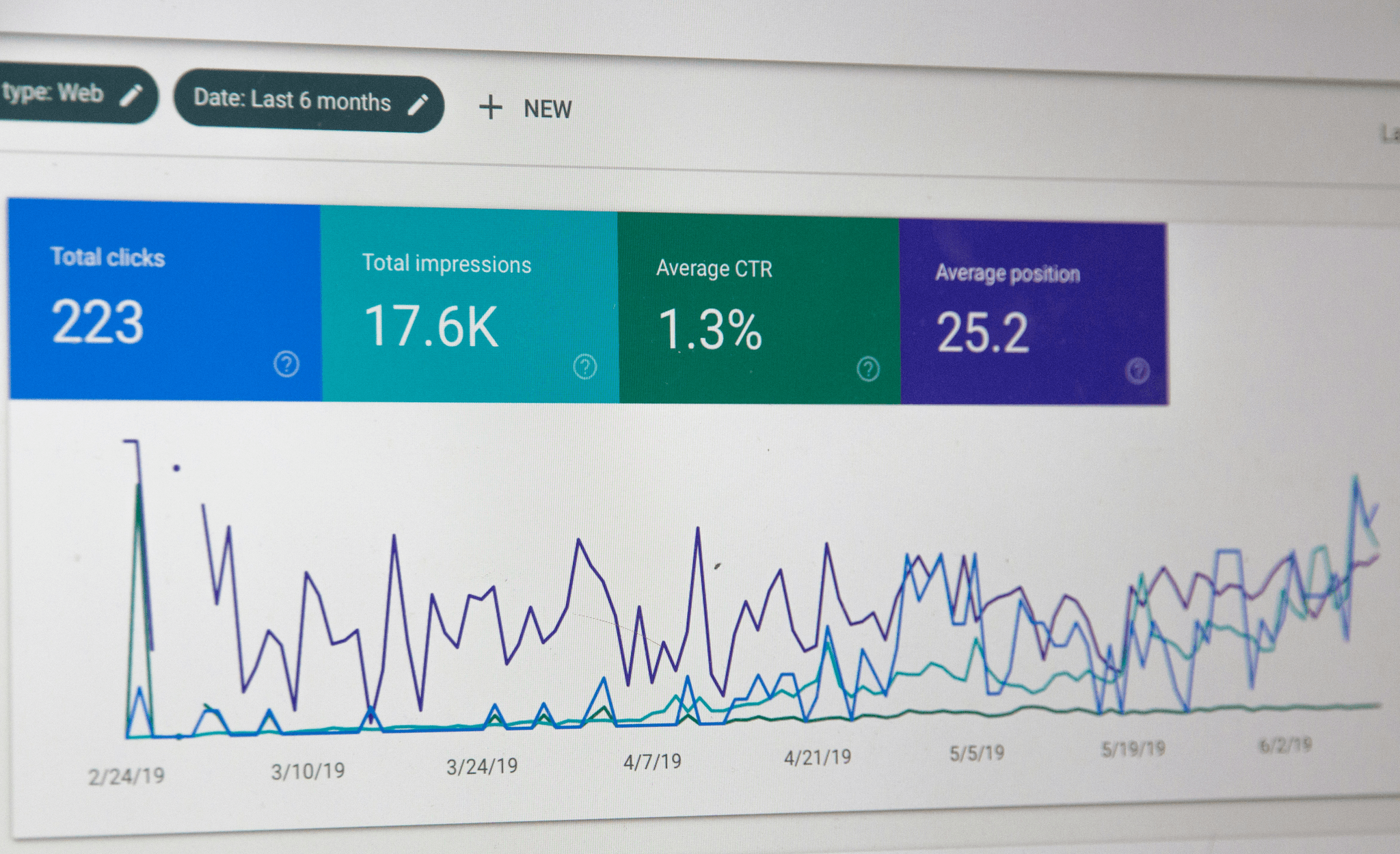Introduction

In the digital landscape, understanding website tags is crucial for effective web making. Website tags are snippets of code that help track and analyze user behavior on a website, creating valuable insights for site owners. Appsite recognizes the importance of proper tag implementation in creating a successful online presence.
Understanding Website Tags
Website tags, also known as tracking tags or pixels, are essential components in web making websites. They are used to collect data on user interactions and behavior, providing valuable information for businesses to optimize their online presence. With Appsite's expertise in website tag management, businesses can gain a deeper understanding of their audience and improve their site's performance.
Importance of Website Tag Management
Effective website tag management is crucial for businesses looking to make a web impact. Properly managed tags ensure accurate tracking and analytics, leading to improved user experience and enhanced website performance. Appsite understands the significance of tag management in creating a seamless online experience for users.
Benefits of Proper Tag Implementation
Proper tag implementation offers numerous benefits for businesses looking to create site visibility and engagement. Enhanced website visibility, improved search engine ranking, and better user engagement are just some of the advantages that come with effective tag implementation. With Appsite's expertise in tag management, businesses can maximize these benefits and achieve their online goals.
What are Website Tags?

Website tags are snippets of code embedded in a web page's source code to track user behavior, collect data, and optimize website performance. They play a crucial role in web making websites by providing valuable insights into user interactions and preferences.
Definition of Website Tags
Website tags, also known as tracking tags or tracking pixels, are small pieces of code that are added to a website's source code to gather data on user behavior. These tags are essential for understanding how visitors interact with a site and provide valuable information for optimizing the user experience.
Types of Website Tags
There are various types of website tags used for different purposes, including analytics tags for tracking user behavior, advertising tags for managing ad campaigns, and conversion tracking tags for measuring the success of marketing efforts. Each type serves a specific function in creating an effective web presence.
Role of Website Tags in SEO
Website tags play a crucial role in search engine optimization (SEO) by providing valuable data on user engagement, site performance, and content effectiveness. This information helps webmasters make informed decisions to improve their site's visibility and ranking on search engine results pages.
Appsite is committed to helping businesses create site experiences that drive success through effective tag management and SEO strategies.
Remember that proper tag implementation is essential for enhancing your website's visibility and improving its search engine ranking. By understanding the role of website tags in SEO and following best practices for tag management, you can maximize your ROI with proper tag implementation.
Importance of Website Tag Management

Website tags play a crucial role in the overall user experience, as they help in organizing and categorizing content for easy navigation. Properly managed tags ensure that users can easily find relevant information on a website, leading to a positive user experience and increased engagement.
Effect on Website Performance
The way website tags are implemented can significantly impact the performance of a site. Well-organized and optimized tags can improve page load times and overall site speed, contributing to a better user experience and higher search engine rankings.
Role in Tracking and Analytics
Website tags are essential for tracking and analyzing user behavior, traffic sources, and conversion rates. By effectively managing tags, businesses can gain valuable insights into their website performance and make data-driven decisions to optimize their online presence.
Appsite understands the importance of efficient tag management in creating an optimal user experience and maximizing website performance. With our expertise in web making websites, we help businesses create site structures that are both user-friendly and search engine-friendly. Contact us today to learn more about our tag management services!
Benefits of Proper Tag Implementation

Proper tag implementation on a website can lead to several benefits that significantly impact its performance and visibility. With the right tags in place, Appsite can enhance its website's visibility, making it easier for users to find and navigate. By using relevant tags, Appsite can improve its search engine ranking, ensuring that its website appears higher in search results and attracts more organic traffic. Additionally, effective tag management can result in better user engagement, as users are provided with accurate and useful information that meets their needs.
Enhanced Website Visibility
By incorporating appropriate tags on every page of the website, Appsite can ensure that its content is easily discoverable by search engines and users alike. This enhanced visibility allows the company to reach a wider audience and increase its online presence, ultimately driving more traffic to the site.
Improved Search Engine Ranking
Properly implemented tags play a crucial role in determining a website's ranking on search engine results pages (SERPs). By utilizing relevant keywords and meta tags across its web pages, Appsite can boost its SEO efforts and improve its position in search results, leading to increased organic traffic and higher conversion rates.
Better User Engagement
When website tags are effectively managed and implemented, they contribute to better user engagement by providing visitors with accurate and relevant information. This not only enhances the overall user experience but also increases the likelihood of users staying on the site longer, exploring different pages, and ultimately converting into customers.
As we've seen, proper tag implementation offers numerous advantages for websites such as Appsite - from increased visibility to improved user engagement. These benefits underscore the importance of strategic tag management for any company looking to maximize its online presence and drive meaningful results.
Best Practices for Website Tag Management

In the world of web making websites, choosing relevant tags is crucial for effective website tag management. Tags on a website refer to snippets of code that help track and analyze user behavior, making it easier to define website performance. When you make a web, selecting tags that are directly related to your content and target audience can significantly enhance your site's SEO and user experience.
Choosing Relevant Tags
When you create a site, it's essential to choose tags that accurately represent the content and purpose of each page. By using relevant keywords as tags on a website, you can improve search engine ranking and make it easier for users to find what they're looking for. Appsite recommends conducting thorough keyword research to identify the most effective tags for your specific niche.
Organizing and Structuring Tags
Properly organizing and structuring tags is another best practice in website tag management. This involves categorizing tags based on their function and relevance to different pages or sections of your website. By doing so, you can ensure that each tag serves a specific purpose in tracking user behavior and defining website performance.
Monitoring and Maintenance
After implementing tags on a website, continuous monitoring and maintenance are essential for optimal performance. Regularly reviewing tag data and making necessary adjustments based on user interaction can help improve the accuracy of analytics tracking. Appsite recommends using tag management tools to streamline this process and ensure consistent monitoring.
By following these best practices for website tag management, you can maximize the potential of your site's SEO efforts while providing an enhanced user experience through accurate tracking and analytics data.
Common Challenges in Tag Management
Website tags play a crucial role in web making websites and are essential for tracking and analytics. However, there are common challenges that come with managing website tags effectively. These challenges can impact the performance and security of a website, making it important to address them proactively.
Tag Overload and Redundancy
Tag overload occurs when there are too many unnecessary tags on a website, leading to slower load times and poor user experience. Redundant tags also contribute to this issue, as they duplicate the functionality of other tags without adding value. Appsite recommends conducting regular audits to identify and remove unnecessary or duplicate tags, ensuring optimal website performance.
Tag Inconsistencies
Inconsistencies in tag implementation can lead to inaccurate tracking and analytics data, impacting the effectiveness of marketing campaigns and SEO efforts. It's important for web developers to ensure that tags are implemented consistently across all pages of a website, using standardized naming conventions and parameters. This will help maintain data integrity and ensure accurate reporting.
Tag Security and Privacy Concerns
With increasing concerns about data privacy and security, the implementation of certain types of tags can pose risks to user information. Tags such as third-party tracking pixels or cookies may raise privacy concerns if not managed properly. Appsite recommends implementing measures such as GDPR compliance and data encryption to address these concerns while still leveraging the benefits of website tags.
By addressing these common challenges in tag management, businesses can optimize their websites for better performance, improved user experience, and enhanced data security. Appsite offers comprehensive solutions for effective tag management to help businesses overcome these challenges while maximizing the benefits of proper tag implementation on their websites.
Conclusion

In conclusion, effective tag management strategies are crucial for optimizing website performance and user experience. By organizing and structuring tags properly, Appsite can ensure that their website is easily navigable and user-friendly. Optimizing website tags for SEO will help Appsite improve search engine ranking and enhance visibility, ultimately leading to better user engagement and increased ROI.
Effective Tag Management Strategies
Implementing best practices for website tag management, such as choosing relevant tags, organizing them effectively, and consistently monitoring and maintaining them, is essential for ensuring a seamless user experience on Appsite's website. By streamlining the tag management process, Appsite can minimize tag overload and redundancy, ensuring that their website remains efficient and effective.
Optimizing Website Tags for SEO
By defining the purpose of each tag on their website, Appsite can ensure that they are aligned with SEO best practices. This will help improve their website's search engine ranking and visibility, making it easier for potential customers to find them online. With proper tag implementation, Appsite can enhance their online presence and attract more traffic to their site.
Maximizing ROI with Proper Tag Implementation
Properly implementing tags on a website can have a significant impact on the return on investment (ROI) for Appsite. By enhancing user engagement through improved navigation and relevant content delivery, they can increase conversions and ultimately maximize their ROI. It is essential for Appsite to prioritize proper tag implementation in order to achieve their business goals.
With effective tag management strategies in place, optimized website tags for SEO, and proper implementation of tags across the site, Appsite can ensure that their online presence is maximized for success. By prioritizing these key elements of web making websites create site without compromising user experience or performance, they can set themselves up for long-term success in the digital landscape.
